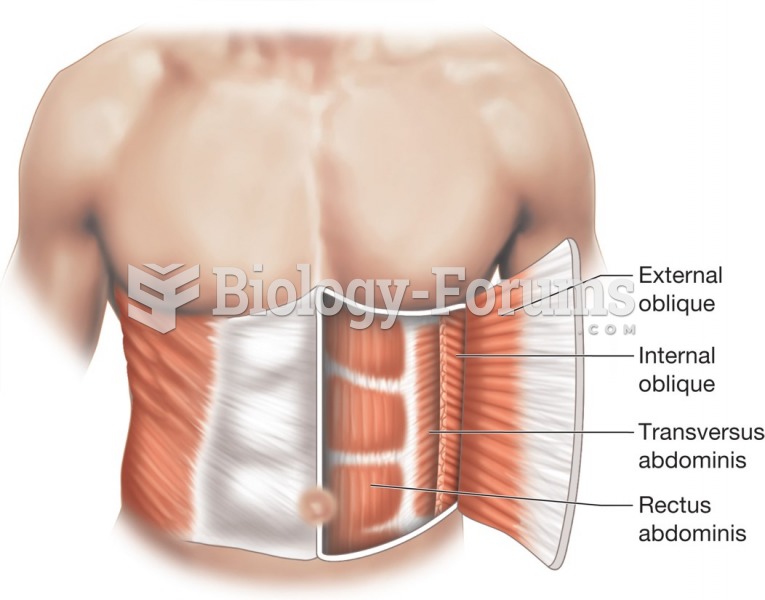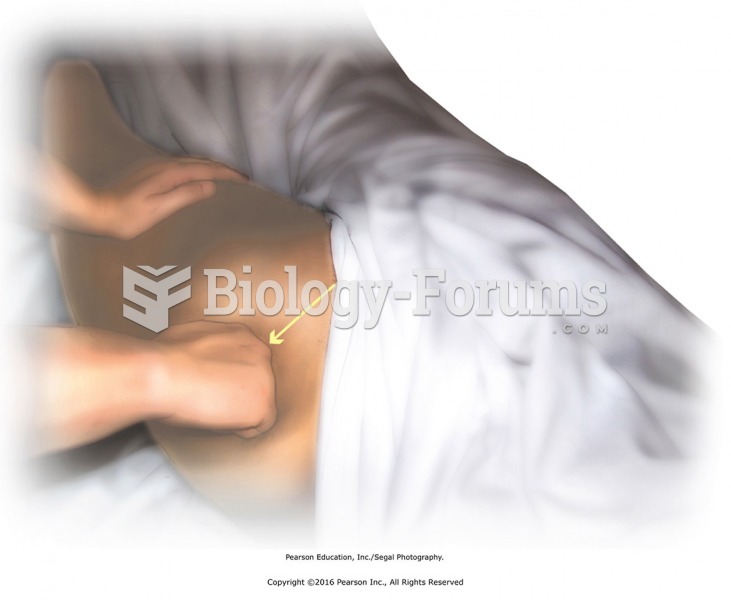|
|
|
More than 34,000 trademarked medication names and more than 10,000 generic medication names are in use in the United States.
Vampire bats have a natural anticoagulant in their saliva that permits continuous bleeding after they painlessly open a wound with their incisors. This capillary blood does not cause any significant blood loss to their victims.
The familiar sounds of your heart are made by the heart's valves as they open and close.
In the United States, congenital cytomegalovirus causes one child to become disabled almost every hour. CMV is the leading preventable viral cause of development disability in newborns. These disabilities include hearing or vision loss, and cerebral palsy.
The human body produces and destroys 15 million blood cells every second.







